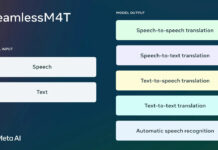Many students make mistakes when taking exams like the PTE Academic Exam that cost them lots of dollars. If they are more careful, most common mistakes can be avoided. These common, repeated mistakes have been made in our instruction of PTE candidates. Let’s look at some common mistakes:
Mistakes to Avoid While Cracking the PTE Exam
1. Fluent does not automatically mean fast
Certain candidates misinterpret speed as fluency, and they go full out in an effort to talk too fast. This reduces their fluency rating. Readability and fluency decrease when you speak too fast. Candidates should strive for a pace that is not too fast or slow. Try to talk at a natural speed and attempt to maintain the pace all the time.
2. Use of unnecessary noise
Many students use filler words such as “hh” and “uhm” in the writing of their sentences. Fluency scores suffer because of this. Filler words such as “like,” “you know,” as well as other noises could be avoided by creating speech templates. The more you use templates for practicing more proficient you will become proficient at it.
3. Using “about” too frequently
Many students make errors in this manner. They often postpone verbs by using the word “about.” In the free test they are given an F for this simple grammatical error.
4. Misapplication of tense forms
PTE candidates often utilize the wrong type of tense when talking about things. For instance, they should you should use the continuous present tense instead of the simple present tense. Marks are lost due to this.
5. Abstain from halting, starting over, repeating, and hesitating.
Your PTE-A speaking score is primarily dependent on your oral fluency. Your Speaking score should improve if you are prone to unnecessary pauses or misspelled beginnings. In addition, stuttering, repeating, and stuttering words should be prevented.
6. Wait too longer
It’s crucial to realize the Speaking Module’s silence of 3 seconds triggers the microphone to switch off. Whatever you say after it won’t be recorded onto tape. Keep this in mind before you sit for the test of speaking.
7. PTE Questions on How to Summarize Written Text: Write One Sentence
In the PTE Writing Text Summarize sections, test-takers can are penalized for writing multiple phrases. Write a sentence that is comprised of only full stops. If you require connections make use of them, but only for a single full stop.
But students can use more than one word for the complete summary for these Summarize Spoken Questions on Text.
8. Don’t use informal Language
It is important to remember that the PTE Academic Test is not the right place to practice colloquial or informal spoken language. The test requires that you use a formal, academic tone. This is in fact an Pearson test in the area of language. Test.
9. Avoid speaking during Pauses
Don’t speak in a stop and starting manner. While this is acceptable for casual conversations but it is not allowed in your PTE Academic Exam. You should speak in complete sentences after arranging your thoughts. Make sure you speak at a steady, everyday speed, so that you have time to gather your thoughts prior to speaking.
Make sure you have your thoughts and ideas prior to writing your responses for each writing section of the PTE to avoid this. To check if you’ve completed all of the words you were given take a look at your word count on the lower left on the display.
10. Writing over the word limit
Be sure to stay within the word limit when creating essays or assignments to summarize written content. Make sure that your essay’s word count is between 200 to 300. Your score on PTE is lower when compose more or less words than your allotted word limit.
Conclusion:
Avoid these errors to get the best possible PTE-A score. Learn a lot with PTE preparatory software, or even online test preparation. It is also possible to get help from qualified experts that provide online PTE tuition.















































